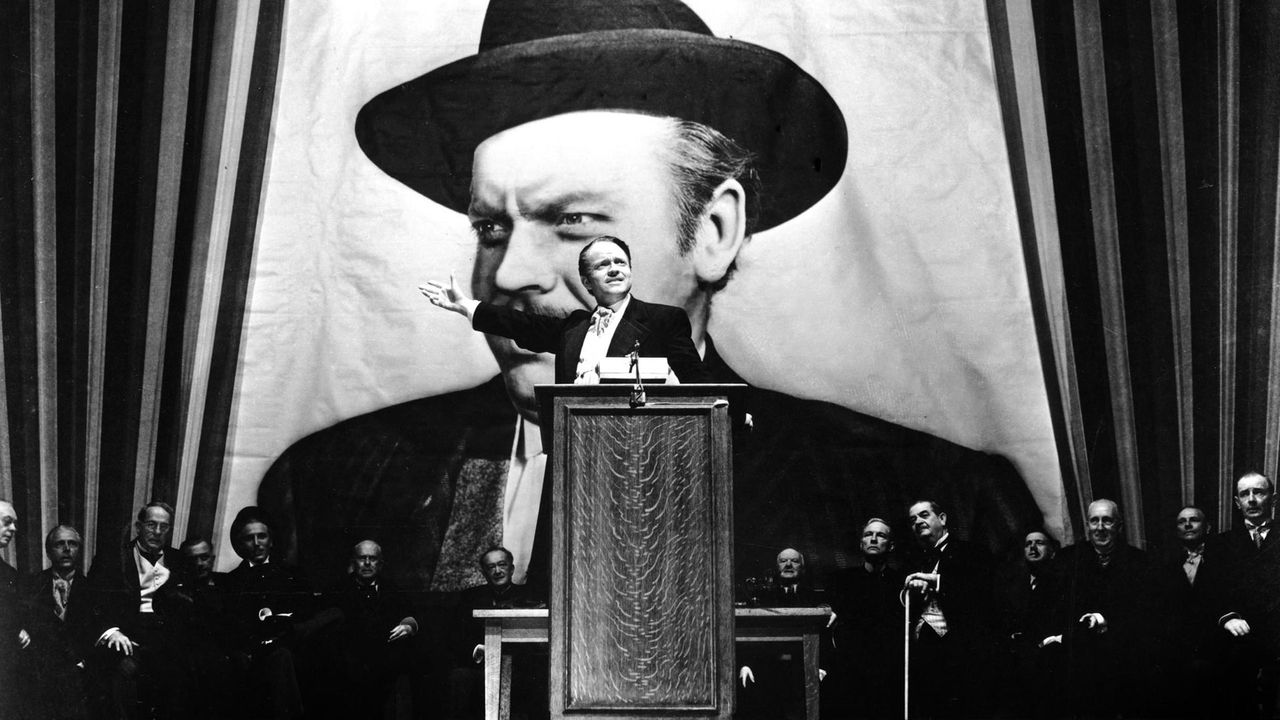A Timeless Tale of Power, Deception, and Isolation
Orson Welles’ Citizen Kane (1941) is often hailed as the greatest film ever made, and for good reason. Its groundbreaking storytelling, deep psychological themes, and sharp critique of power make it just as relevant today as it was over eight decades ago. At its core, the film is a study of a man who seemingly has it all—wealth, influence, and charm—yet loses everything that truly matters.
One of Citizen Kane’s most striking aspects is how it portrays charisma wrapped in deceit. Charles Foster Kane, played masterfully by Welles himself, is introduced as an ambitious and persuasive figure, capable of winning over crowds with his grand speeches and promises. However, as the film progresses, it becomes clear that his charm is largely an illusion. Kane manipulates people, bends the truth to suit his interests, and slowly builds a façade that crumbles as his personal life falls apart. His rise and fall serve as a cautionary tale, showing how a leader’s outward appeal can mask their inner emptiness and moral decay.
The film also serves as a brilliant character study of a man who is full of himself but ultimately ends up alone. Kane’s arrogance and self-importance prevent him from forming genuine connections with those around him. His relationships—with friends, lovers, and colleagues—suffer because he treats them as extensions of his own ego rather than as individuals. Despite his immense fortune and power, he dies isolated in his vast mansion, whispering “Rosebud” in his final moments—a symbol of the simpler, happier life he abandoned in his pursuit of dominance.
One of Citizen Kane’s most fascinating elements is its exploration of media’s role in shaping public perception. Kane, a newspaper mogul, understands the power of the press and uses it to push his own agenda, manipulating stories to suit his ambitions. This aspect of the film feels eerily relevant today, as traditional print media has given way to social media, which now plays a similar role in controlling narratives. Just as Kane’s newspapers distorted the truth, today’s influencers, corporations, and political figures use digital platforms to sway public opinion, sometimes with dangerous consequences.
Ultimately, Citizen Kane remains a cinematic masterpiece because its themes—power, corruption, media manipulation, and loneliness—are timeless. It is a haunting reminder that unchecked ambition can lead to personal ruin, no matter how successful one appears on the surface.
A Must Watch

